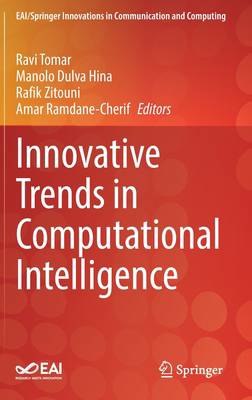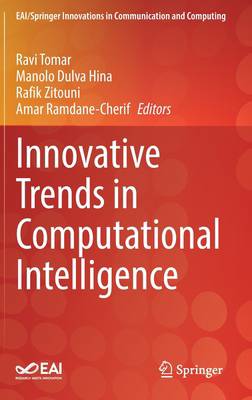
- Retrait gratuit dans votre magasin Club
- 7.000.000 titres dans notre catalogue
- Payer en toute sécurité
- Toujours un magasin près de chez vous
- Retrait gratuit dans votre magasin Club
- 7.000.0000 titres dans notre catalogue
- Payer en toute sécurité
- Toujours un magasin près de chez vous
Innovative Trends in Computational Intelligence
Description
This book addresses the key problems that computational intelligence aims to solve, including (i) the involved computational process might be too complex for mathematical reasoning; (ii) it might contain some uncertainties during the process, or (iii) by nature, the computational process is a randomly determined one (heuristic). The contributors make use of methods that are close to the human's way of reasoning, that is, available information might be inexact or incomplete, yet it would be able to produce controlled actions in an adaptive way. Approaches presented in the book include swarm intelligence, artificial immune systems, image processing, data mining, natural language processing, text mining, and other solutions involving artificial intelligence methodologies.
Spécifications
Parties prenantes
- Editeur:
Contenu
- Nombre de pages :
- 288
- Langue:
- Anglais
- Collection :
Caractéristiques
- EAN:
- 9783030782832
- Date de parution :
- 30-11-21
- Format:
- Livre relié
- Format numérique:
- Genaaid
- Dimensions :
- 156 mm x 234 mm
- Poids :
- 607 g

Les avis
Nous publions uniquement les avis qui respectent les conditions requises. Consultez nos conditions pour les avis.





